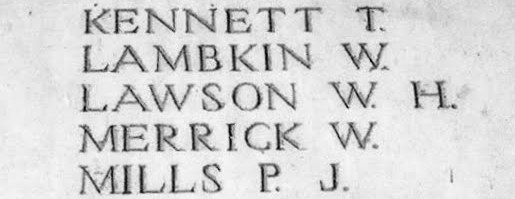Mark V Lawson was educated
at Belfairs High School in Leigh-on-Sea, Southend Technical
College, York University and Cambridge. He received
his BA in Mathematics from York University in 1981,
studied for the Part III at Sidney Sussex College,
Cambridge, and then returned to York to work on his
DPhil under the supervision of John Fountain. During
this time, he was also a part-time course tutor for the Open
University. His post-docs took him first to
Lincoln College, Oxford for three years as the Thomas
Rotherham Junior Research Fellow in Mathematics, and then to
the Technische Hochschule (since renamed), Darmstadt to work
for a year in Karl H. Hofmann's research group supported by
a Royal Society European Exchange Scheme Programme
Fellowship. In 1989, he returned to Britain to take up
a lectureship in mathematics at the University of Wales,
Bangor. In 1999, he became a Senior Lecturer in
Mathematics at Bangor, and in 2004 he moved to Heriot-Watt
University, Edinburgh to take up a lectureship. He was
promoted to senior lecturer in 2007 and professor in 2015.
Lawson has published over
80 papers with his research interests centred on
algebraic semigroup theory. He has made research visits to
Australia (1992, 1994), Hungary (1996), France (2016, 2018),
Germany (1996, 2012), Portugal (1998, 2001, 2008, 2010,
2012, 2016, 2018, 2023), Israel (2000, 2009) and Canada
(2000, 2010, 2012, 2016).
Seven research students have successfully completed their
PhDs under his supervision: Peter Hines (1998), Helen James
(2000), Tanveer Khan (2001), Joseph Matthews (2004) , David
Gareth Jones (2011), Bassima Afara (2013) and Alistair
Wallis (2013). A new PhD student, Francesco Tesolin,
began in 2024.
His role as first
year co-ordinator in mathematics came to an end in September
2022. Previously, he was a member of the University's
Discipline Committee, the Undergraduate Studies Committee
and served two terms as a member of Senate. In 2017,
he completed three years as pure mathematics external
examiner for NUI, Galway having previously been external
examiner for pure mathematics at the University of Newcastle
for four years until 2013 and sub-honours external
examiner for mathematics at St Andrews University for three
years until 2014. He is currently looking after first-year
induction during Welcome Week.

